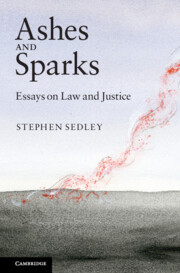Book contents
- Frontmatter
- Contents
- Preface
- Acknowledgements
- PART I History
- 1 Victors' justice
- 2 Above it all
- 3 Reading their rights
- 4 From victim to suspect
- 5 Farewell sovereignty
- 6 No law at all
- 7 The sound of silence
- 8 The spark in the ashes
- 9 Wringing out the fault
- 10 Everything and nothing
- 11 Skulls and crossbones
- PART II Law
- PART III Justice
- Index
9 - Wringing out the fault
Published online by Cambridge University Press: 05 June 2012
- Frontmatter
- Contents
- Preface
- Acknowledgements
- PART I History
- 1 Victors' justice
- 2 Above it all
- 3 Reading their rights
- 4 From victim to suspect
- 5 Farewell sovereignty
- 6 No law at all
- 7 The sound of silence
- 8 The spark in the ashes
- 9 Wringing out the fault
- 10 Everything and nothing
- 11 Skulls and crossbones
- PART II Law
- PART III Justice
- Index
Summary
Northern Ireland, where the methods of interrogation used by the security services had resulted in the condemnation of the United Kingdom by the European Court of Human Rights, seemed an appropriate place to explore the history of coerced evidence and the bar on self-incrimination in the modern world. This was the subject of the MacDermott Lecture which I gave in Belfast in 2001.
The essay argues that the decision of the European Court of Human Rights in the Saunders case sent us down a blind alley. We seemed to be slowly extricating ourselves from it by principled reasoning when 9/11 happened. The fears expressed here of what the response to that atrocity might do to the principles of due process and the right not to be tortured proved grimly well-founded.
I admit to being a footnote freak. In the conviction that there is no such thing as useless information, I scan the footnotes in everything I read and annotate my own work, where possible, with data that I can't get into the text. This essay, in addition to being published unannotated in the London Review of Books, was published fully annotated in the Northern Ireland Legal Quarterly; but rather than send other footnote freaks in search of that publication, I have reproduced the less technical ones here.
For at the common law … his fault was not to be wrung out of himself, but rather to be discovered by other means, and other men. Blackstone, Commentaries, IV, 296.
- Type
- Chapter
- Information
- Ashes and SparksEssays On Law and Justice, pp. 101 - 121Publisher: Cambridge University PressPrint publication year: 2011



